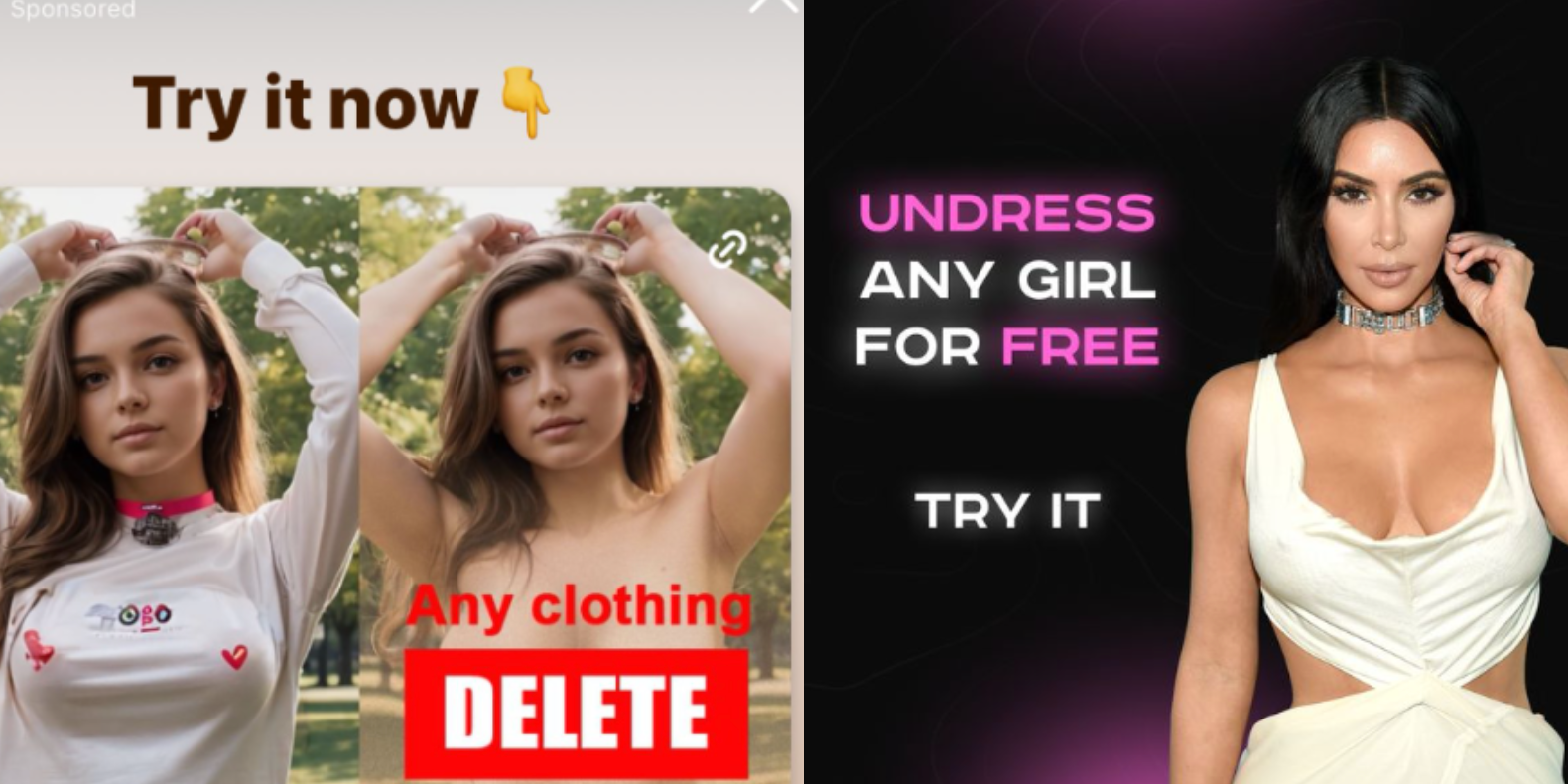- cross-posted to:
- [email protected]
- cross-posted to:
- [email protected]
Instagram is profiting from several ads that invite people to create nonconsensual nude images with AI image generation apps, once again showing that some of the most harmful applications of AI tools are not hidden on the dark corners of the internet, but are actively promoted to users by social media companies unable or unwilling to enforce their policies about who can buy ads on their platforms.
While parent company Meta’s Ad Library, which archives ads on its platforms, who paid for them, and where and when they were posted, shows that the company has taken down several of these ads previously, many ads that explicitly invited users to create nudes and some ad buyers were up until I reached out to Meta for comment. Some of these ads were for the best known nonconsensual “undress” or “nudify” services on the internet.



Nope. Quite the opposite in that consent is not required.
Edit: You have no right to restrict someone else from taking photos and videos while in public. Period. Their purpose and use doesn’t matter (commercial usage can be limited to some extents). https://lifehacker.com/know-your-rights-photography-in-public-5912250
There are limits regarding the right to take pictures in public. Instances of creepshot photographers have raised issues of good faith. For-purpose media (a street scene in the news, for instance, requires that any foreground person must have consent, or must be censored out.
So, dependjng on your state and county (or nation) it may be a crime to take pictures of someone else with an intent to use them as a foreground element without their consent (explicit or otherwise).
This is why I said this…
But let’s look at it this way…
https://www.earthcam.com/world/ireland/dublin/?cam=templebar
https://www.earthcam.com/usa/florida/lauderdalebythesea/town/?cam=lbts_beach
https://www.earthcam.com/usa/florida/naples/?cam=naplespier
https://www.earthcam.com/world/southkorea/seoul/songridangil/?cam=songridan_gil
https://www.earthcam.com/world/israel/jerusalem/?cam=jerusalem
So why is nothing on this site blurred? If there are “limits” why is there literally cameras being streamed of public places that can have faces in the foreground pretty clearly without consent. EVEN CHILDREN! WHO WILL THINK OF THE CHILDREN! (/s) Earthcam makes money doing this…
How about literally every company with a security camera?
This is never litigated under the issue of pictures in public. This is always done under stalking/harassment laws. None of them are ever just “He took a picture that I’m in”.
How about if I buy stock photos and feed that into the AI system. Does that count since they didn’t intend for that to be it’s use? “Creepy” and “morally wrong” isn’t necessarily illegal. The concern isn’t the public photography and actually ownership of the photo belongs to the person who takes the photos not the subjects in the photo. So yes, you don’t particularly have much recourse unless you can prove damages that falls under some other law. Case and point Paparazzi… I mean there’s literally been lawsuits where the settlement was in favor of the photographer AGAINST the subject https://sports-entertainment.brooklaw.edu/media/a-new-type-of-internet-troll-how-paparazzi-use-copyright-law-to-cash-out-on-celebritys-instagram-posts/ She used a photo on her insta from that paparazzi, the paparazzi sued, settlement was reached and the photo was removed. She didn’t have license to use that photo, even though it’s her in the picture. You can find this shit literally everywhere. We’ve already litigated this to death. Now we all think that paparazzi are generally scum… but that doesn’t make it illegal.
What is new here is does an AI generated thing count as something special on it’s own in a legal perspective. The act of obtaining pictures while in public is not really a debate even if they were obtained to create a derivative work. I fall on the side of the AI generated thing being fair use. It’s a transformation of the original work and doesn’t violate your actual privacy (certainly not any more than taking pictures of a nude beach). IMO any other stance would negate so much other shit that we all rely on (meme-culture specifically) that it’s hypocritical to hold any other stance. Do I like that… Not really, but it doesn’t make sense otherwise.